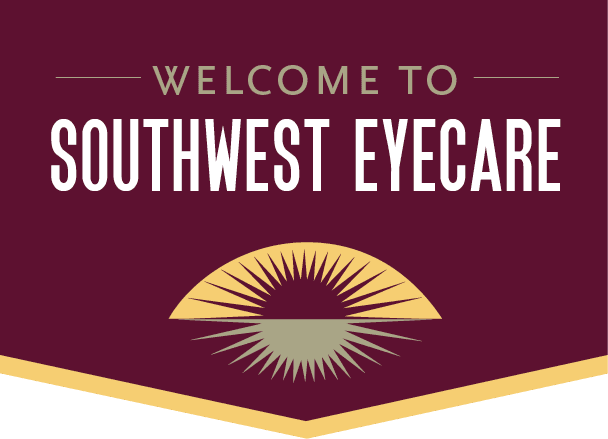
Cataracts Albuquerque
As we get older, many changes take place in our bodies that may degenerate our health – and our eyes are no exception. If you’re over the age of 60 and are suffering from blurry or cloudy vision, you may have age-related cataracts. Though cataracts are a natural part of aging, there are steps we can take to prevent them and treatments that may improve symptoms. At Southwest Eyecare, our Albuquerque cataracts specialists diagnose and treat cataracts using the latest technology, helping our patients to see clearly and improve their quality of life!
What is a Cataract?
Our eyes are much like a camera – the lens of our eyes focuses on objects and the information recorded is sent to the brain. In a normal eye, light is able to pass through a transparent lens and translate this information into a picture, but when the lens is cloudy because of cataracts, the image we see is blurred. Our lenses are made of water and protein, and as we age, some of the protein may clump together and start to cloud a small area of the lens – this is a cataract. Overtime, it may grow larger and cloud more of our lens, further obstructing our ability to see clearly. Cataracts can affect your vision in two ways; making it cloudy and blurry or adding a yellow / brown tinge to everything we see. This type of vision impairment can greatly affect your quality of life, and activities such as reading and driving can become difficult and sometimes even dangerous if you’re not able to see as well as you should.
Although cataracts are normally caused by aging, there are certain factors that may increase your risk:
- Certain diseases (ex. diabetes)
- Lifestyle decisions (ex. smoking and alcohol use)
- Environment (ex. overexposure to ultraviolet sunlight)
Cataract Symptoms
Symptoms vary amongst patients, however the most common types of symptoms can include:
- Cloudy or blurry vision
- Faded colors
- Poor vision at night
- Glare caused by lights
- Sensitivity to light
- Double vision
- Frequent prescription changes in eyeglasses or contact lenses
It’s important to note that these symptoms may be a sign of other, more serious eye problems in addition to cataracts. If you have any of these symptoms, we recommend scheduling an appointment with us.
Southwest Eyecare: Albuquerque Cataract Specialists
The only way to effectively treat a cataract is through surgery, where the cloudy lens is replaced with a clear, artificial lens. However, if detected early, some cataract symptoms may be improved with new eyeglasses or anti-glare or magnifying lenses. In order to detect any changes in vision and identify a cataract in its early stages, routine eye exams are crucial! At Southwest Eyecare in Albuquerque, we’re committed to providing our patients with the highest quality of care to ensure their vision can keep up with their lifestyle at any age.
Cataracts don’t have to affect your quality of life.
See clearly again and call (505) 346-0500 to schedule a consultation with the trusted eye doctors at Southwest Eyecare!
Call Now!